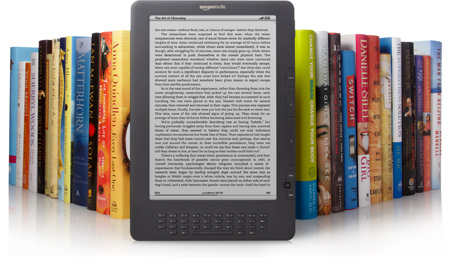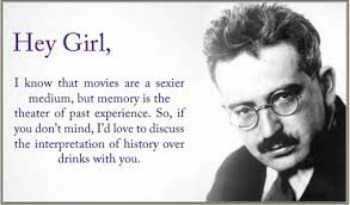With the technological advances society has seen in recent decades as well as the rise of personal electronic devices, the debate about the reader experience between print publishing and electronic publishing is everywhere. Fundamentally, books (and more specifically novels) are connected to the ancient cultural practice of storytelling. Philosopher Walter Benjamin comments on the breakdown of oral storytelling with the rise of the novel, which was built on the intense experience of the individual versus the previous explicitly group activity. However, the novel allowed for a greater group experience through the mass production of a physical book that united the solitary readers; thus, leading to the observation that just because a story is said aloud doesn’t make it communal and just because it’s written down doesn’t remove it from this tradition.
So, I started thinking about the rise of electronic publishing and the formatting of eBooks, etc. On first thought following the logic of novels being farther reaching than storytelling, material on the internet is even farther reaching to the majority of demographic groups and has easier accessibility than the printed book. Now there’s instant (and often free) access to a vast library of materials from the comfort of your home or office. But it seems that another issue arises in the way in which we can annotate and follow along with others with these texts. A group of people can have the same version of the same text on different devices, such as a laptop, an older kindle, a newer kindle, and a tablet, and the way the sections of text appear can be vastly different. This isn’t too far from everyone having a different publication of a physical book, but it seems easier to find a passage as you’re flipping through a book than endlessly scrolling on your device. Which leads me to another claim that a professor of mine stated (I’m just going to hope for the sake of my argument he’s correct on this): when we have a physical copy of a book our brains remember where certain passages or actions take place based on being the left or right side of the book as well as the positioning on the page. Personally, I do this a lot when trying to find something I read, knowing that it appeared on this side or that. However, when you’re reading on an electronic device it typically is produced as one page at a time, making this memory connection impossible.
Essentially, everyone is still receiving the same information, but the format becomes less communal than printed work. I find it harder to follow along with electronic copies of material, but some people seem to prefer this method. Perhaps this is my bias for the good old fashioned pages in my hand, but I think this spacial information gathering has interesting implications for publication.

